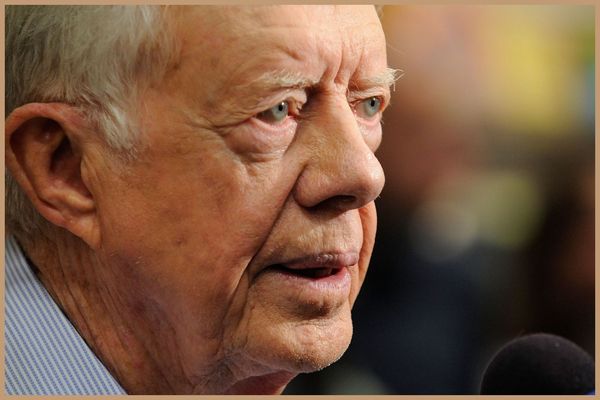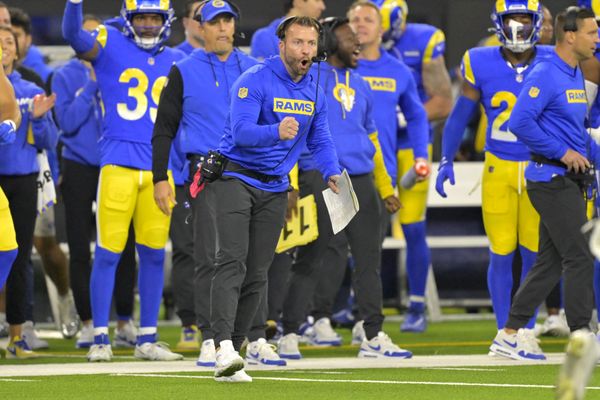
In praise of Gareth. Can we take a moment to do this now? Can we just suck that sweetness down? Because this was a very good game for England and their manager, a manager who has, for all his success, his status as pretty much the most sensible person currently active in English public life, had a weirdly vitriolic year and a half.
It was a good game for Gareth Southgate because England were bad at first, and then they were good, and good thanks to a stroke of tactical switchery that broke the game open. It was good because players Southgate brought in ended the night playing with freedom; Marcus Rashford romping like a cosseted puppy, spanking England’s opening goal into the top corner then celebrating with something that felt, and indeed was, a kind of catharsis, the feeling of a breaking wave.
It was good because England entered this World Cup facing, on paper, the toughest group in the tournament. They have now eased through it while scoring nine goals and never trailing at any stage. It was good because England’s third goal was made by a pass from one sub, Trent Alexander-Arnold, to another, Kalvin Phillips, whose long pass then found Rashford, who chopped inside then smashed the ball past a concrete-booted Danny Ward.
This is a World Cup like no other. For the last 12 years the Guardian has been reporting on the issues surrounding Qatar 2022, from corruption and human rights abuses to the treatment of migrant workers and discriminatory laws. The best of our journalism is gathered on our dedicated Qatar: Beyond the Football home page for those who want to go deeper into the issues beyond the pitch.
Guardian reporting goes far beyond what happens on the pitch. Support our investigative journalism today.
It was good because Southgate picked a fun-looking team, the front three a combination of mobility, craft and Harry Kane things. It was good because Southgate has the best tournament record of any England manager, ever. Maybe, who knows, he might actually be decent, or at least not – can we say this now? – a bearded fraud, a woke dinosaur, a stop on progress and all the rest.
Southgate came here decked out in a kind of Executive Golf Weekend smart casual mashup of shimmery white dad‑top and blue FA suit. And he looked genuinely happy at the end as he lounged in his chair and smiled and said things like “we enjoy each others’ company”.
The Ahmad bin Ali Stadium is a lovely-looking thing, woven with a kind of winter wonderland tissue of vast fibreglass alien creepers, and coloured by a scrolling sheen of iridescent light. As the crowd sang about Southgate being the one, as the players waved to a bank of white, the thought occurred that there isn’t another, alternate England where this thing works any better. This is it. The good bit.
And it was good because England also showed their weaknesses, but swallowed them down by the end. In the build-up to this game Southgate was asked about his players being “let off the leash”, about the possibility of leash‑letting, of leashes hurled to the skies. His answer was to the point. Basically, there is no leash. The leash is not a thing. The leash exists only in the most simple analysis.

Plans either work, the moment is seized, or it isn’t. Football is closer to chaos theory than the flapping of an Iranian goalkeeper’s gloves, a run that isn’t picked, a cross that finds just the right level of arc. All of these details feed into the narrative of outcomes.
Southgate didn’t actually say this. He just said there basically is no leash, just a process of refining those details, and hoping this brings more days where this falls in your favour.
With this in mind, the real key to England’s hopes is not the freedom of the second half but the stodge of the first, during which they aimed for control but were horribly static, producing long periods of un-football, a half that felt at times like an existentially glazed piece of performance art; Andy Warhol’s Sleep reinterpreted via a series of cautious shuttle runs from Kyle Walker.
In the opening three minutes England passed the ball to each other 17 times in their own half. This kind of possession at the back does have a purpose. That purpose is to keep the ball, rest and control the game. It is how Southgate erased the flakiness in this team, transformed the defence into a kind of five-man human sandbag.
But that tactic has never made the next step. For a high‑end club team, a prime Pep vehicle, the real point of possession in these areas is to set your starting positions against counterattack, and then to move the opposition around. It has an aggression to it.
England are instead rigid. The lines never bend or bleed into one another, just move forward like dutiful pedestrians shuffling down Wembley Way to an overcrowded tube platform.
That pattern changed here. Southgate switched Rashford and Phil Foden from inverted to orthodox wide players: left‑footer on the left, right on the right. Both players scored from that side, holding their width.
Foden is not a one-man fix for England’s dogged rhythms. He isn’t the unleashing (remember: there is no leash). But he must now start in the last 16 against Senegal, if only because no other player in England’s squad offers his touch and easy grace on the ball, his ability to move between the rigid lines of this team.
England will move on, with calls to set free the hares, to hurl the handbrake from the passenger window. It won’t happen. Southgate has often pointed out that tournaments basically come down to details.
This is what will happen now. Southgate will think about control. And whatever moments might lie in store, they will always have this one.







